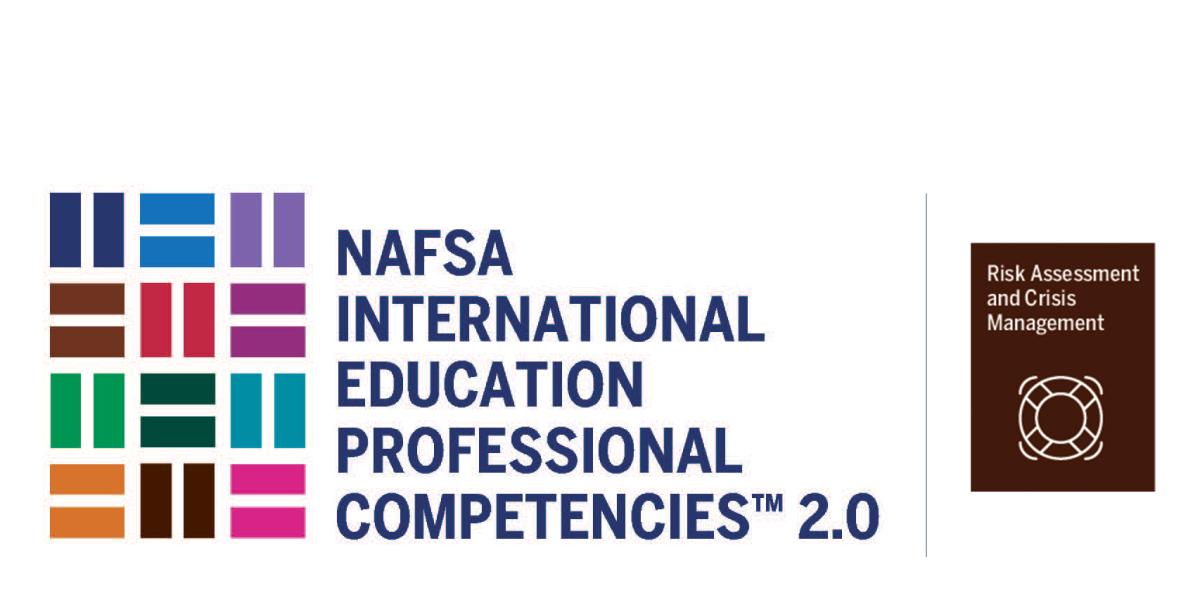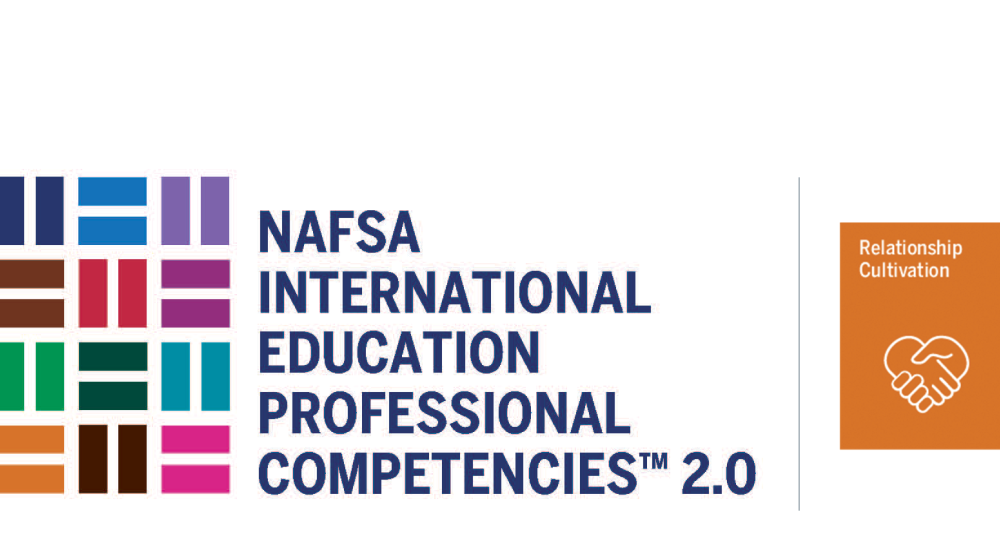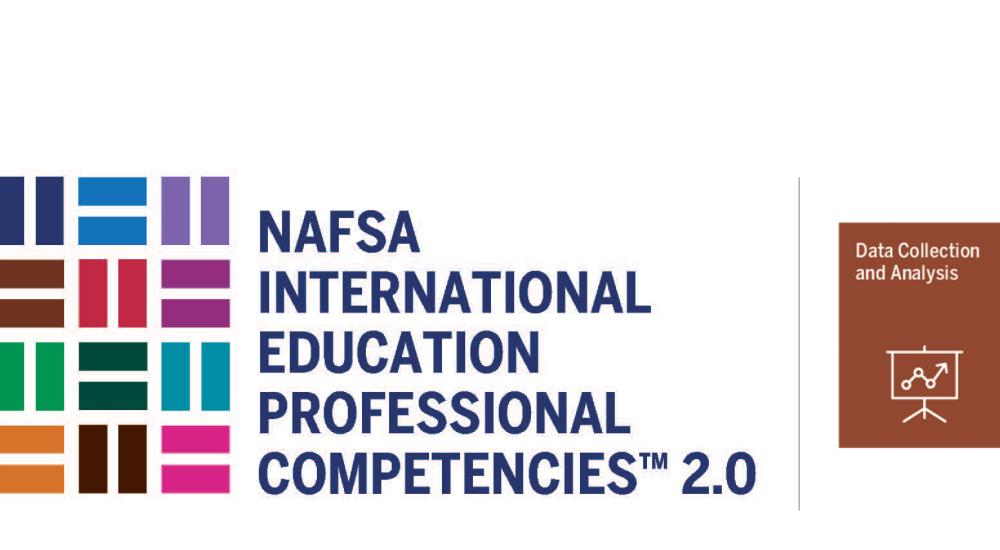Reflections on the NAFSA IE Competencies: Risk Assessment and Crisis Management

Editor’s note: This article is one in a new series for 2023 that explores one of the 12 International Education Professional Competencies 2.0 in each issue of International Educator. Each written by a NAFSA member, the articles cover how that competency is critical to the future of the field and what it looks like in practice.
The COVID-19 pandemic highlighted the critical importance of risk assessment and crisis management skills, demanding that every professional in the field be well versed in crisis response protocols, no matter their role or level. Though I served as director of a study abroad office when the global pandemic emerged, these skills are not specific to education abroad. International educators across all areas of the field had a role to play in the response to this crisis—tracking the spread of the virus; advising students about academic implications; crafting communications to students, overseas partners, parents, and administrators; advocating for financial assistance; processing refunds and adjusting insurance; and supporting the international exchange student population.
During and after the public health emergency, the field has experienced significant turbulence. In the education abroad space, the recent State of the Field comprehensive survey from the Forum on Education Abroad shows that turnover within the field is at an all-time high. Consequently, there is a loss of institutional knowledge and expertise in the field. A staggering 47 percent of respondents now find themselves tasked with risk management and crisis response responsibilities without having received sufficient training to effectively serve in the capacity of a primary risk manager.
As NAFSA embarks on its next 75 years, the importance of cultivating risk assessment and crisis management competencies cannot be overstated. They are essential to safeguarding the health, safety, and well-being of students; protecting institutional assets; and preserving the reputation of institutions.
While there are a multitude of factors at play, I believe there are three core principles of effective risk assessment and crisis management in international education. When combined with the principles of equity, inclusion, and diversity, they form a robust framework for navigating the complex landscape of risk and crisis in international education and reflect a commitment to the well-being of all students.
1. Proactive Risk Identification and Assessment
Due diligence requires us to identify and evaluate reasonable and foreseeable risks proactively and comprehensively and develop appropriate mitigation strategies to minimize the likelihood and impact of adverse events. Assessments should take into consideration health, safety, and security, including cultural, socioeconomic, geopolitical, and environmental factors. We must conduct our risk assessments through the lens of equity and inclusion, ensuring the needs of our diverse student populations are met. Additionally, we must communicate risks to our students, allowing them to make informed decisions.
Given the surge in mental health concerns among students, as we look ahead to the next 75 years, inclusive program design informed by thorough risk assessments becomes imperative to ensure accessibility and adequate support for diverse populations of students.
2. Effective Communication Strategies and Collaboration
Crisis management demands clear, timely, and culturally sensitive communication and a proactive and collaborative approach. International educators must develop effective communication strategies prioritizing transparency, accuracy, and empathy for our various stakeholders, including upper administration, departments and colleges, office personnel, students, and parents—when appropriate. Communications must address the incident, response efforts, and any necessary adjustments to programs or student support. We must have strong relationships within our institutions and with our external partners to provide support during a crisis and help ensure a unified and coordinated response.
3. Comprehensive Crisis Planning and Response
International education professionals must develop detailed response protocols that outline specific actions, responsibilities, and communication plans in the event of various crises, such as health emergencies, political unrest, or natural disasters. They should also regularly update and practice those protocols. These plans should be dynamic, reflecting the evolving nature of risks, and include strategies for safeguarding the well-being of students, faculty, and staff and protecting institutional assets and reputation. Regular training and simulations ensure that the response team is well prepared to execute the plan effectively when needed.
International educators must recognize that risk affects students differently, and students and program leaders' multiple and intersecting identities impact the risks they encounter. Inclusive program design should address diverse needs, and crisis management plans must prioritize equitable access to support services.
I have managed many major crises abroad throughout my career: a missing student and a search-and-rescue operation; numerous mental health crises; suicidal behavior; faculty leader departure mid-program; a tsunami and a resulting nuclear power plant meltdown; sexual assault; a narco-crime related abduction; a life-threatening food allergy; and, of course, a global pandemic. There have also been scores of more common issues, including anxiety, depression, suicidal ideation, and eating disorders. To navigate these situations, several skills and abilities were required: remaining calm, assessing the risk at hand, having awareness of policies and protocols, utilizing campus partners and resources, and communicating clearly and effectively.
These are not skills I had when I started in the field as a study abroad adviser; rather, I pursued professional development opportunities offered by NAFSA. I firmly believe that my willingness (and interest) to pursue as much training as possible and engage with colleagues to learn from them is what helped me progress in my career. International educators, particularly education abroad practitioners, who may be newer to risk management can attain these critical skills by leveraging resources provided by NAFSA, Pulse International, the Forum on Education Abroad, Diversity Abroad, and the Overseas Security Advisory Council (OSAC). Our professional organizations offer many training opportunities, publications, and guidelines.
Additionally, institutions can create a dedicated international risk management position to solidify their commitment to these competencies, ensuring a centralized and specialized approach to risk assessment and crisis management.
Looking ahead to the next 75 years, there must be a concerted effort to equip international educators with the necessary skills and resources to navigate uncertainties and champion the well-being of a globally engaged, diverse student body. By leveraging the resources provided by NAFSA and other organizations, international educators can navigate the complexities of risk assessment and crisis management, managing their roles with confidence and mitigating risk to students and institutions while offering essential global education opportunities. •
Kim Priebe is the associate director for global travel at the University of North Carolina-Chapel Hill and a member of the Education Abroad Knowledge Community (EAKC) Subcommittee on Health and Safety in Education Abroad.
NAFSA Resources
About International Educator
International Educator is NAFSA’s flagship publication and has been published continually since 1990. As a record of the association and the field of international education, IE includes articles on a variety of topics, trends, and issues facing NAFSA members and their work.
From in-depth features to interviews with thought leaders and columns tailored to NAFSA’s knowledge communities, IE provides must-read context and analysis to those working around the globe to advance international education and exchange.
About NAFSA
NAFSA: Association of International Educators is the world's largest nonprofit association dedicated to international education and exchange. NAFSA serves the needs of more than 10,000 members and international educators worldwide at more than 3,500 institutions, in over 150 countries.
NAFSA membership provides you with unmatched access to best-in-class programs, critical updates, and resources to professionalize your practice. Members gain unrivaled opportunities to partner with experienced international education leaders.














